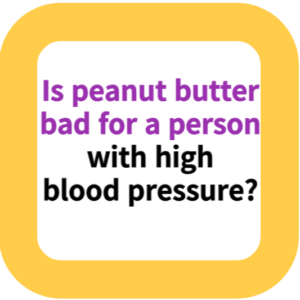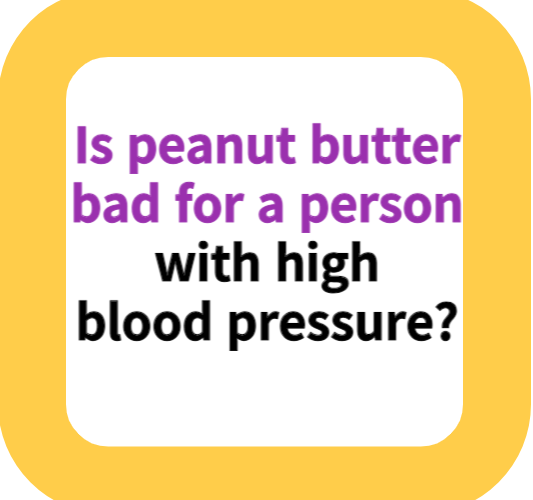Is peanut butter bad for a person with high blood pressure?
Welcome to our latest blog post where we delve into the intriguing world of peanut butter and its impact on high blood pressure. Peanut butter, a staple in many households, is not only a delicious spread but also a nutrient powerhouse, rich in proteins, healthy fats, and essential vitamins and minerals.
Is peanut butter bad for a person with high blood pressure?
In this post, we explore its nutritional profile, the benefits it offers for those managing high blood pressure, and how to select the right type for maximum health benefits.
We also discuss important aspects such as the role of tryptophan in peanut butter, the importance of portion control due to its high caloric content, and how to navigate the often overlooked factors like added sodium and sugar in commercial brands.
Whether you’re a peanut butter enthusiast or someone looking to manage your blood pressure through diet, this post provides valuable insights into making peanut butter a healthful part of your dietary routine. Join us as we spread the knowledge on peanut butter and its place in a heart-healthy diet.
Is peanut butter bad for a person with high blood pressure?

Introduction
Peanut butter is widely recognized as a nutritious and versatile food, rich in several key nutrients. Particularly for those with high blood pressure, understanding its nutritional profile and how it fits into a balanced diet is crucial.
This comprehensive overview explores the various aspects of peanut butter, from its nutrient composition to specific considerations for individuals managing high blood pressure.
Nutritional Profile of Peanut Butter
Peanut butter is a powerhouse of nutrition, containing substantial amounts of protein, healthy fats (especially monounsaturated fatty acids), vitamins like E and B-complex, and minerals such as calcium, magnesium, zinc, and iron.
The presence of monounsaturated fatty acids is particularly noteworthy as they contribute to lowering cholesterol, reducing blood pressure, and improving lipid profiles.

Role in Managing High Blood Pressure
Peanut butter’s benefits for individuals with high blood pressure are multi-faceted. It is rich in magnesium and potassium, minerals directly involved in blood pressure regulation. Additionally, the protein and fiber content in peanut butter supports cardiovascular health by providing a protective effect against hypertension.
The Importance of Tryptophan
Peanut butter contains tryptophan, an amino acid essential for the production of serotonin and melatonin. These neurotransmitters play a vital role in regulating sleep and mood. Adequate sleep is a crucial component of overall health and particularly important for those with high blood pressure.
Caloric Density and Portion Control
While peanut butter is nutrient-rich, it is also high in calories, with about 588 calories per 100 grams. Overconsumption can lead to weight gain, a risk factor for hypertension. It is recommended to limit intake to 2 tablespoons per day, balancing its consumption with other dietary needs.
Selecting the Right Type of Peanut Butter
The health benefits of peanut butter can be compromised by certain additives. Many commercial brands contain hydrogenated vegetable oils and saturated fats, which contribute to artery plaque formation and high blood pressure. Opting for organic or natural peanut butter with no added saturated fats is crucial for maintaining its health benefits.
Sodium and Sugar Considerations
Many peanut butters on the market have added salt and sugar, which can be detrimental to blood pressure management. Selecting unsweetened, low-sodium, or sodium-free varieties is essential for those with hypertension, helping to avoid unnecessary sodium and sugar intake.
Conclusion
In summary, peanut butter can be a valuable part of a diet for individuals with high blood pressure when consumed wisely. Its rich nutritional profile offers numerous health benefits, but attention must be paid to the type of peanut butter chosen, portion size, and added ingredients like sodium and sugar. By making informed choices, individuals with high blood pressure can enjoy peanut butter as a healthy addition to their diet.
